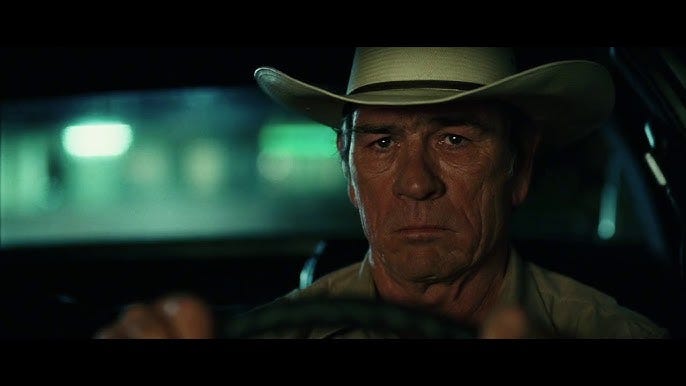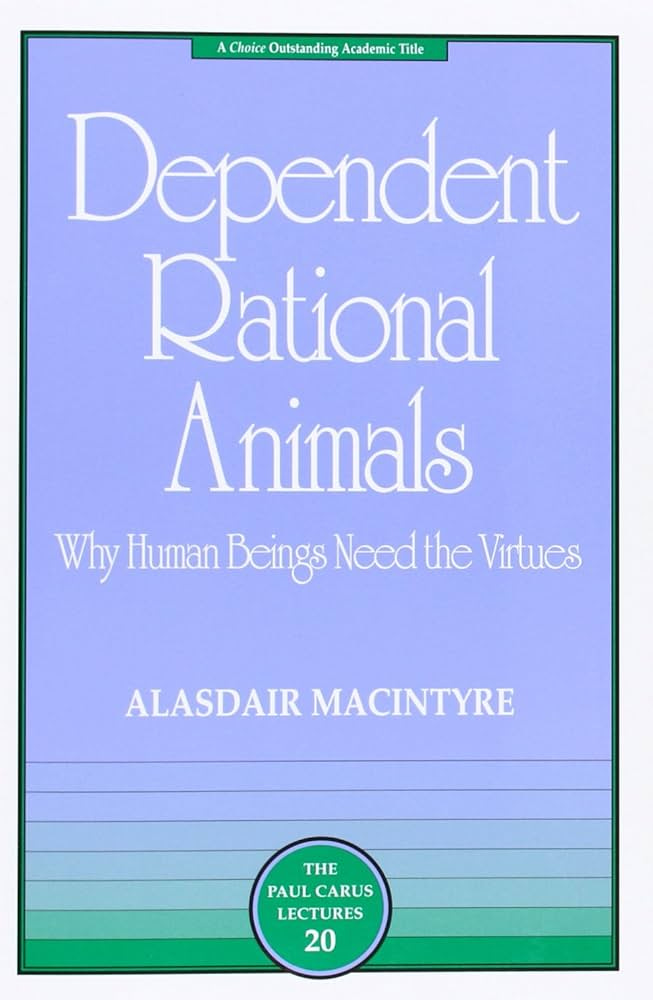
If you’re fortunate enough, you will live to be old. There will come a time when you’re too weak to work like you used to, where you can’t handle the same tasks you did, and when you have no choice but to rely on others. We can try to hide from it, delaying retirement and staying close to work. Still, your strength can’t last forever. This is an essential fact of human life, one we must reckon with throughout life—Plato once argued that the most important purpose of philosophy is preparing for death.
Recently, I had a stark reminder of this in my own life: my grandfather passed away after a years-long struggle with Alzheimer’s. Losing a loved one is always painful, but it’s especially difficult to see someone you admire slowly lose so many of the things you admired in them.
As humans, we live in pursuit of flourishing: fulfilling our potential by achieving virtue. Yet more than once, I was left asking myself whether this pursuit was meaningless if it could all disappear at the end of life.
It’s easy to think of the ideal human life as self-reliant. This isn’t some mindless mistake we make, either: thinkers from Socrates to the Stoics to Kant to Henry David Thoreau all seem to think that the purpose of our lives is independence. But, of course, even the wisest men can make mistakes. When we focus on self-sufficiency as the purpose of life, are we making a mistake?
Is Self-Reliance Our Goal?
When we picture our ideal lives, we tend to think of the people we want to help. In conversations about the purpose of life and work, people almost always tell me about their aspirations to help their families, the poor, or the depressed. We all want to know how we can do good with our lives. We might focus on different people, but nearly everybody wants to help others somehow.
But there’s an odd assumption in this view. We almost always think of ourselves as the ones helping others. Rarely do we think about the help we need. We don’t picture ourselves as the poor in need of charity or the despairing in need of inspiration. In this ideal future, we always see ourselves as the ones helping others without realizing that we will almost certainly need others to help us.
It’s inevitable that we will need others to live a good life. You will be sick. You will be old. There’s no good way to avoid these things, and when they come, you will need to ask for help.
Should we just look at these moments as bumps in the road? Is sickness just an obstacle to purpose? Is aging just the time limit life puts on fulfillment?
Perhaps we can separate our ideal lives from these tragic downfalls in life. But it feels odd to say that these moments somehow don’t count for purposeful living. Nobody can avoid dependence. Even if you manage to avoid sickness and pass away when you’re still strong, you still relied on your parents or guardians for help when you were young. We have to exclude huge parts of life to hide from dependence.
Continuing down this path won’t work. We aren’t always self-reliant. Often, we need to lean on others to live life well. What do we need to learn to do our part in this dependency?
Dependent Rational Animals

I owe these ideas to the late, great Alasdair MacIntyre. (This is far from the only idea we’ve taken from him.) MacIntyre spent much of his life exploring and defending how we can better understand our lives through virtue. He saw himself as a modern proponent of ideas that date back to Aristotle. Though his arguments had ancient roots, they remain entirely relevant in the modern age.
But MacIntyre noticed himself—and, in fact, just about every thinker in ethics—making the same mistakes we saw above. They looked at dependents as passive participants in a good life. A good person helps them. A good person will respect their dignity. But we don’t often ask what it means to be a good person and a dependent.
Dependence isn’t unusual. We’re all dependent as children. We’re dependent when we’re sick. We’re dependent when we’re old. We’re dependent when we simply don’t know what to do. There are virtues of self-reliance. But what are the virtues needed to lean on others in difficult times?
Aristotle, along with many others, saw humans as “political” animals (the term “political” comes from the Greek word for city, “polis”). Humans tend to make communities. We live better with others around.
But Aristotle’s idea of the best life seemed to focus on the leaders of human communities. What are the most important virtues? They’re things like generosity and ambition, always with a focus on what you can do for others. But Aristotle didn’t spend much time—if any—asking what the virtues were for the people receiving your help. In fact, he generally thought that people lower on the social hierarchy couldn’t achieve the highest ideals of human life. He thought only a rich person could truly be generous, for example.
Perhaps the poor could still be happy in some way, but it wouldn’t be the same happiness the rich and great have. It might create contentment. Some virtues, however, would remain inaccessible. It seems like an incomplete life. This is likely why Aristotle neglected to call humility a virtue, instead focusing on acknowledging your own greatness.
But, MacIntyre argues, this view starts with a poor understanding of the possible goods in life. Some virtues are about pursuing your own good. Others are about pursuing what’s good for others. But, curiously, none seem to ask about what’s good for everyone. They don’t apply to shared goods.
We know what virtues are needed to pursue individual goods. We know what’s needed to help others. Now, what’s needed to pursue these shared goods?
The Virtues of Dependence
There are two basic things we need to choose a path forward: a goal and a means to pursue it. Our goal is genuine common goods. What does a dependent need to achieve this?
One of the most important virtues in MacIntyre’s view is proper gratitude. Someone who needs help needs to offer thanks for the help they receive. This means accepting that you genuinely need help, offering thanks without being overbearing, and avoiding anger when a giver falls short.
This requires humility. Humility means honestly recognizing your place in the world, including your dependence on others. It means thinking about what others have given you. Often, it means downplaying your own achievements to focus on what others have done. Humility shouldn’t mean hating yourself, but it should mean focusing less on yourself.
Last, MacIntyre emphasizes the need for sympathy. This is the best way to prepare ourselves for dependence. If you can look at someone in need and see yourself, your understanding of both sides will be entirely changed. You can’t just regard them as some separate category of person. You have the same potential for dependence as anyone sick or impoverished. Both of you are pursuing the same types of goods, though you may be in different positions right now.
These are the three basic virtues of dependence: knowing your own need in humility, seeing what needs you share with sympathy, and accepting help with gratitude. These aren’t optional for a good life. Each of us will learn just how important they are when we’re in a desperate time in life.
Human beings aren’t self-sufficient by nature. We’re born dependent and we die dependent—if anything, it’s unnatural not to need help. To live a complete life, it’s not enough to know what you can do for yourself. You must prepare for those moments when you can’t help yourself.
If, someday, you come to a point where you can’t help yourself, you may ask, “What was the point of all this?” There’s not one answer, but perhaps this is one part of it: life is about learning to accept when you’re no longer enough on your own.


I think that the virtues of dependence are easier for women to recognize. Indeed, a major point made by male thinkers like Aristotle is to contrast the “weakness” of women with the, ahem, “self-made” man’s strength, also noting that that’s why he thinks that women cannot achieve a truly good life. And since people who have some amount of power have been the ones with enough leisure to write philosophy—which, until recently, means “not women,” among other things—of course the folks with power will focus on those individualistic virtues, and willfully ignore those of dependence.
But being physically weaker than men, and being responsible for the very vulnerable task of making and nourishing new humans with our bodies, women have not been able to pretend that we are independent until very recently. Weaker people have had no other option but to build coalitions of mutual support with others, and they have had no way of pretending it’s otherwise. I think that’s a contributing reason why to this day women are more likely to seek help from others without embarrassment, and to share credit for an accomplishment with others.
This article really hit a nerve, or more accurately my tear glands.
Poor health can turn your world inside out and finding peace and purpose is a challenge. Realizing that there is a gift in the process of learning gratitude and humility.